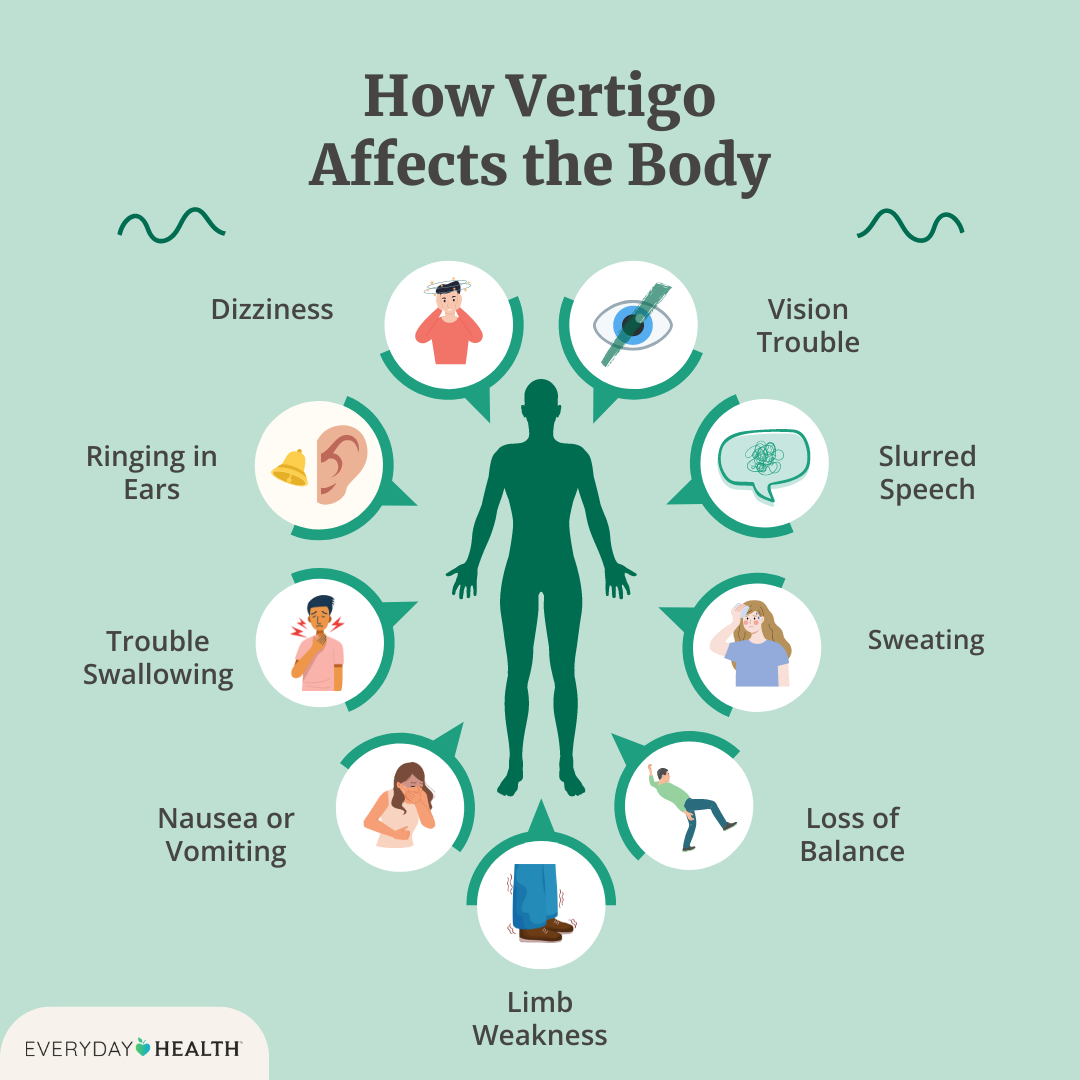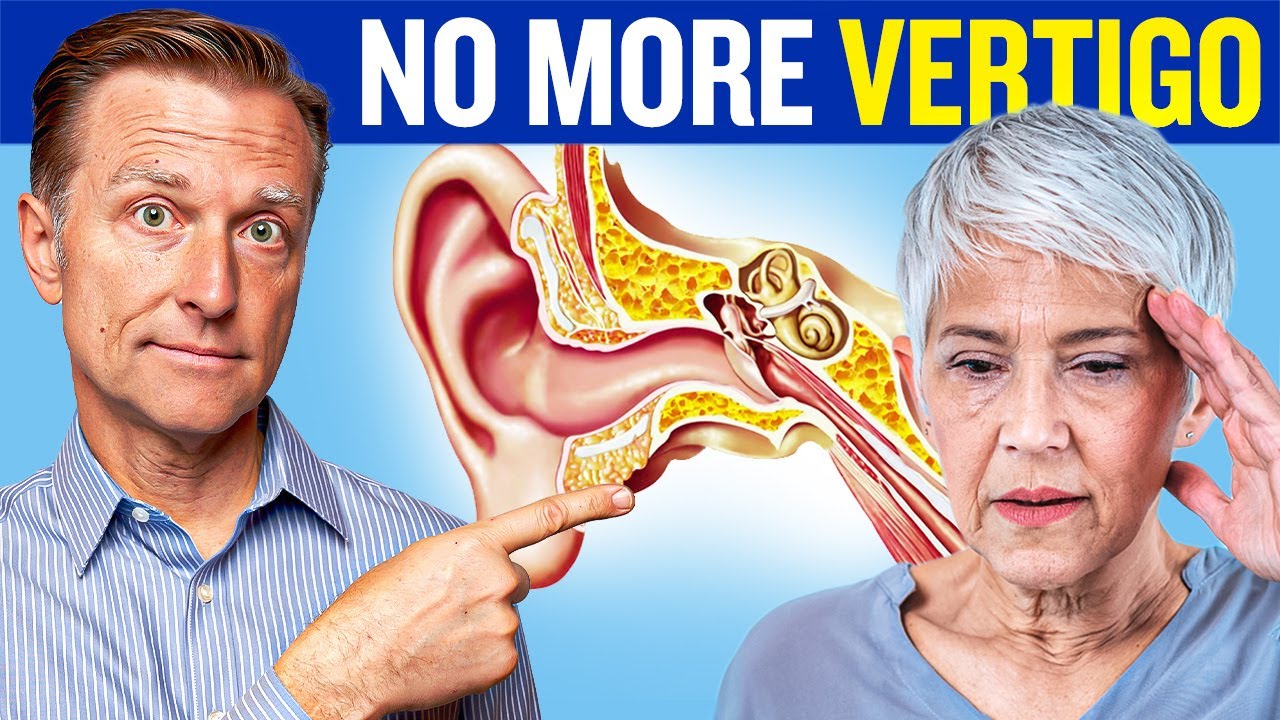VERTIGO SYMPTOMS, CAUSES, PREVENTION AND HOME REMEDIES

Please note our content is intended solely for informational purposes and should not be used in place of official medical advice.
What is Vertigo?
Vertigo, rather than a condition, is a symptom of vestibular dysfunction, a disturbance in the body's balance system, and a type of dizziness characterized by an abnormal sensation of motion (mainly rotational motion). People with vertigo may experience a feeling of spinning or moving in the environment around them. It can last for a few seconds to hours; however, people with severe vertigo may suffer for many days to months.
Vertigo is not the same as being lightheaded. People with vertigo feel as though they are actually spinning or moving, or that the world is spinning around them.
Vertigo is also known as Peripheral vertigo; Central vertigo; Dizziness; Benign positional vertigo; Benign paroxysmal positional vertigo.
There are two types of Vertigo:-
Central vertigo: The underlying pathology (disease process) in the brain stem or cerebellum (responsible for processing sensory information and controlling balance) generally causes central vertigo. The more gradual onset of symptoms usually describes central vertigo and may be associated with other neurological symptoms such as difficulty in speaking or double vision.
Peripheral vertigo: The pathology of the inner ear (that is responsible for spatial orientation and maintaining balance) causes peripheral vertigo. The typical characteristics of peripheral vertigo include sudden intense dizziness episodes along with symptoms such as nausea and vomiting.
Symptoms of Vertigo:- Dizziness Spinning Sensation Hearing loss in one or both ears Loss of balance (may cause falls) Ringing in the ears Nausea and vomiting, leading to loss of body fluids Sweating Problem focusing in the eyes If vertigo is due to problems in the brain (central vertigo), there maybe other symptoms, including: Difficulty swallowing Double vision Eye movement problems Facial paralysis Slurred speech Weakness of the limbs Nystagmus (rhythmic jerking eye movements) during a vertigo episode
Who is most at risk or more susceptible for Vertigo?
- Females Persons with diabetes
- Persons with hypertension
- Age
- Migraine
- Long use of computers
- Vitamin D Deficiency
What causes Vertigo?
Peripheral vertigo may be caused by:
- Benign positional vertigo (benign paroxysmal positional vertigo, also known as BPPV)
- Certain medicines, such as aminoglycoside antibiotics, cisplatin, diuretics, or salicylates, which are toxic to the inner ear structures
- Injury (such as head injury)
- Infections
- Inflammation of the vestibular nerve (neuronitis)
- Irritation and swelling of the inner ear (labyrinthitis)
- Meniere disease
- Pressure on the vestibular nerve, usually from a noncancerous tumor such as a meningioma or schwannoma
Central vertigo is due to a problem in the brain, usually in the brain stem or the back part of the brain (cerebellum).
Central vertigo may be caused by:
- Blood vessel disease
- Certain drugs, such as anticonvulsants, aspirin, and alcohol
- Multiple sclerosis
- Seizures (rarely)
- Stroke
- Tumors (cancerous or noncancerous)
- Vestibular migraine, a type of migraine headache
Treatments for Vertigo
To help resolve symptoms of benign positional vertigo, the provider may perform the Epley maneuver on you. This involves placing your head in different positions to help reset the balance organ.
You may be prescribed medicines to treat symptoms of peripheral vertigo, such as nausea and vomiting.
Physical therapy may help improve balance problems. You'll be taught exercises to restore your sense of balance. Exercises can also strengthen your muscles to help prevent falls.
Ways to prevent worsening symptoms during an episode of vertigo:-
- Drink adequate amount of water to stay hydrated.
- Taking rest as much as possible
- Keep still and avoiding sudden, fast head movements such as moving around too quickly or looking up suddenly.
- Sit or lie down when symptoms occur. Change positions slowly while standing up after lying down. Sit down for a couple of minutes before standing up and avoid sudden position changes.
- Gradually resume activity.
- Do not try to read when symptoms occur. Avoid bright lights.
- Hold onto the railing while climbing the stairs.
- Walking aids need to be used while walking.
- When experiencing vertigo, operating hazardous equipment or machinery, or driving, they must be avoided to protect themselves.
Home Remedies for Vertigo:-
Visit https://www.healthline.com/health/home-remedies-for-vertigo#epley-maneuver for ways to treat vertigo at home.
More information can be found at https://www.pacehospital.com/vertigo-symptoms-types-causes-prevention-and-treatment
How to Fix (CURE) VERTIGO (BPPV) at Home | How To Do the Epley Maneuver
The #1 Vitamin Deficiency Behind Vertigo
How to Dissolve Crystals in the Inner Ear and Get Rid of Vertigo
Vertigo and Dizziness Relief Avoid these 3 Foods | Dr. Matthew Posa Chiropractor in Milton






